As of late, I feel like I tend to get a lot of traction and interest for my Year's Best Retrospective posts. I am singling out 1995 as it turns 30 this year, but I am not about to make the claim that this is a hidden gem of a year.
The 15 films I am about to discuss are all very good to great films, although my top 3 would be the only films that warrant a 5-star rating for me. The rest would get 4.5/5 but that is certainly nothing to scoff at. I think 1995 is another prime example of a year where The Oscars and the rest of the award season were not the best barometer of in showing the best of the year.
For example, spoiler alert, Braveheart won Best Picture that year, but it will be nowhere close to making it onto this list. To give you a tease, only one Best Picture nominee from that year made this list...and it was not the one I would've expected. 1995 was a pretty strong year when it comes to indie and we will be seeing quite a few of those on this list as well.
It is still pretty crazy that 1995 is now 30 years ago. While I proceed to lift my jaw from off the floor at the fact, let's dive into the list.
====================
#15 - WELCOME TO THE DOLLHOUSE
Written & Directed by Todd Solondz
While technically not released to the general public until May of 1996,
Welcome to the Dollhouse first premiered at the 1995 Toronto International Film Festival so, for all intents and purposes, I am going to shout it out here.
The film revolves around an awkward and unpopular 12-year-old named Dawn Wiener (Heather Matarazzo) who lives in a small suburban New Jersey town with her dysfunctional family.
Todd Solondz has such a distinctly subversive satirical style that is dripping with dry, dark humor and that is fully on display here.
Coming-of-age films can be insufferable to sit through, but they can also be surprisingly engrossing when done well. I think when they do something invigorating with the tone, they can become something more than just an awkward but endearing story.
I always think back to my time in middle school as the worst time of my life, and it is always films like this that can truly capture that vibe of how kids can be very cruel...and not to mention, very stupid.
________________________________
#14 - KIDS
Directed by Larry Clark
Written by Harmony Korine
Perhaps one of the more volatile films on this list both in terms of content and the critical response, Kids is an aggressive look at the lives of pre-teens and teenagers roaming the streets of New York.
They are sexually active, including the nearly 18-year-old Telly (Leo Fitzpatrick) sleeping with a 12-year-old girl and taking her virginity. In fact, Telly only wants to have sex with virgins. They also shoplift alcohol and consume other narcotic substances regularly.
We eventually meet Jennie (the exceptional Chloe Sevigny in her film debut), who tests positive for HIV, but she tells the nurse that she only had sex with one person: Telly. She then tries to get ahold of him knowing he will likely keep spreading it to other young girls.
Director Larry Clark wanted to have Kids be seen as "the Great American Teenage Movie" as if it could be comparable to that of a "Great American Novel". I will say that Kids is brutal in the best ways, and it does seemingly capture a New York that hasn't quite been messed with by the Rudy Guiliani administration who had just become NYC Mayor while the film was being shot.
Two of the film's biggest defenders at the time of its release were Roger Ebert and Janet Maslin. The former acknowledged that this was a film that needed to be discussed and that while the film has a message, it is also fully aware that "safe sex is not going to civilize these kids". Nothing is going to be THAT simple. The latter felt that the film was difficult to sit through for the right reasons and that it should be seen "as a wakeup call to the modern world".
I actually haven't watched Kids since high school. I do have to wonder how it would be if I went back to revisit it.
______________________________________
#13 - LOVE LETTER
Written & Directed by Shunji Iwai
I don't even remember for certain what led me to watching Love Letter. It wasn't like I heard of the director or any of the performers, but admittedly, there was a time in my life where I did take more chances on watching films in a way that I don't really do today. Normally I will dig around and find recommendations rather than basing it just off the description I may come across...which back then would've likely been via the TV Guide Channel or a literal TV Guide.
A young woman named Hiroko (Miho Nakayama) loses her fiance Itsuki in a mountain climbing accident. Two years after the accident, a memorial service is held; she looks through his high school yearbook and finds an address under his name. As a form of catharsis, Hiroko decides to write a letter to Itsuki and sends it to the address only to get a response back from a WOMAN named Itsuko. From that point on, the film alternates between Hiroko and the female Itsuki as they become pen pals.
However, we do learn that the female and male Itsuki both knew each other, which makes Hiroko suspect that maybe the reason he fell in love with her is due to the resemblance she shares with the female Itsuki. I should also point out that the female Itsuki is played by the same actress to really drive that point home.
Love Letter is a film that somehow manages to straddle a line between being bittersweet but also feels deeply beautiful. Dealing with the grief of memories is something that is very universal no matter the language, but admittedly, I always love when this comes up as a subject in Japanese cinema.
Even recently with Ryusuke Hamaguchi's Drive My Car, I found that to be another great example of how people handle grief and those around them with grief...whereas that film also had grief being expressed through art, Love Letter is through the connection of a lost love and how a random stranger can give you some kind of catharsis.
____________________________________
#12 - THE USUAL SUSPECTS
Directed by Bryan Singer
Written by Christopher McQuarrie
Good lord, I always forget that this film was directed by Bryan Singer...moving past that awkward tidbit of info...
The Usual Suspects is part of a group of films that has maintained a sense of "legend" due to its ending, sort of like The Sixth Sense or Fight Club would achieve 4 years later. However, as amazing as the ending is, I do think the film has more to offer than that.
Having said that, I do find it interesting that this is one film over time that I have grown to admire less. There was a time where I likely would've ranked this film not only in my top 3 but as high as my #1 slot. Even when I first drafted this list, I had it at #4. After I started to write about it and other films, I found myself thinking more positively about the rest of the list and kept shifting The Usual Suspects down.
What really brings this film up to a higher level, aside from the script's progression to the end, is that of Kevin Spacey's performance as Verbal Kint. Say what you will about Kevin Spacey, but the man can act. I adore this performance, and he is simply so captivating acting opposite Chazz Palminteri.
I used to try to defend this film A LOT more, but I do think it doesn't fully age as well as a final product. However, if you go in pretty blind, you will likely appreciate it quite a bit. At the very least, you can admire the plotting and that iconic Oscar winning Spacey performance.
_____________________________________
#11 - PARTY GIRL
Written & Directed by Daisy von Scherler Mayer
Co-written by Harry Birckmayer
Thanks to her scene-stealing work on Season 3 of The White Lotus as the well-to-do North Carolinian Victoria Ratliff, Parker Posey has had a bit of a career resurgence at the time of me writing this post. As a kid, I took to her instantly in the Christopher Guest movies, namely Waiting for Guffman and Best in Show.
However, Parker Posey had a whole other moniker entirely in the 90s: Queen of the Indies.
Bouncing around working with filmmakers like Richard Linklater and Noah Baumbach in their earliest films, Posey established herself as an effervescent and eccentric character actress who could pretty much do anything you asked of her.
This vibe truly began with Party Girl, in which Michael Musto of Vanity Fair dubbed her "the new Queen of the Art House" and was a highly assured feature-film directorial debut for Daisy von Scherler Mayer, who had mostly been known for her contemporary stage interpretations of Shakespeare staples like The Tempest and Two Gentlemen of Verona.
Posey plays Mary, a young woman who spends her life flitting from party to party until one night, she is arrested at an underground rave. Once she has her godmother Judy pay her bail, she seeks to repay her but reluctantly agrees to do so by becoming a clerk at the New York Public Library where Judy happens to work.
This is a very solid film that is elevated by the presence of Parker Posey. For a film that cost only $150,000 and was shot over 19 days, the final result is a little underrated gem from 90s cinema...and in terms of its footnote in history, it just so happens to be the first film to have a premiere on the internet which had only been available widespread for roughly 2 years at that point.
__________________________________
#10 - BABE
Written & Directed by Chris Noonan
Co-written by George Miller
Yes, you are reading this correctly. Babe is an absolute delight.
What is even more hilarious is that as kid, I wasn't a big fan of the film. In fact, when I heard that it got nominated for Best Picture, I was floored!
However, I cannot deny that this film is so sweet and charming and that the scenes between James Cromwell and Babe the Pig are enchanting. That final moment (seen in the picture) when Babe looks up at Cromwell's Farmer Hoggett and he says the immortal "That'll do, pig. That'll do"...it almost makes me misty even thinking about it now.
When it comes to family-oriented films, Babe was a clear example of one that was made with total class and a sense of detail. It wears its heart and soul on its collar, and it does thrill me that a film like this was able to be embraced by the film community as a strong artistic achievement. I can even recall at the time that the film led to a surge in vegetarianism, with James Cromwell leading that charge.
As for its sequel, Babe: Pig in the City, a film that Gene Siskel dubbed the Best Film of 1998, I remember THAT one flooring me in other ways...but that is a story for another day. George Miller took the reigns which wasn't shocking considering how much he and Noonan feuded during the making of the first one. I just think its crazy that George Miller, the same man behind the Mad Max films, also help bring children's fare like Babe and Happy Feet to the screen.
_______________________________________
#9 - SE7EN
Directed by David Fincher
Written by Andrew Kevin Walker
After having a highly successful career directing music videos, including the iconic "Vogue" and "Express Yourself" videos for Madonna, David Fincher was given the opportunity to direct the third installment of Alien. Needless to say, that did not go well. A lot of that film's faults, however, can't fully be attributed to Fincher as it is clear he does have some interesting visual ideas.
His sophomore outing, Se7en, is truly his coming out party and where you can see the true promise of his technical mastery.
I am not exactly a passionate fan of Fincher's work like I am some of his contemporaries, but it is hard to deny that man is a master at crafting tension and can pace scenes down to a tee. Even a film like Zodiac, which I actually think is superior to Se7en, is nearly 3 hours long but he keeps that film moving in such a way that I marvel at it every time I see it.
Se7en is a film that I did like upon first viewing, but it resonated over time. So much about the film's aesthetic is so gritty and grime, but it comes off as vibrant and thrillingly alive. At that point in time, I am not sure many people were going to claim that Brad Pitt was some kind of remarkable actor, but he is buoyed up working next to a master like Morgan Freeman.
The idea of a serial killer utilizing the Seven Deadly Sins feels like one of those plots that could border on gimmicky and melodramatic, but nothing about Se7en suggests this.
But I gotta say...that scene where Kevin Spacey gives Brad Pitt some head...if you know, you know...
_________________________________
#8 - FALLEN ANGELS
Written & Directed by Wong Kar-wai
Ah yes, my main man Wong!
I have waxed rhapsodic about Hong Kong filmmaker Wong Kar-wai quite a bit on this blog, particularly his magnum opus, In The Mood for Love from 2000. I have also talked a little bit some of his other films such as Happy Together from 1997, but this is the first time I will be discussing Fallen Angels, his neo-noir genre bending crime film.
The film circles around two intertwining stories: Wong Chi-ming (Leon Lai), a hitman who is looking to leave his life behind and the relationship he has with a prostitute named Hui-ling (Karen Mok) and his "partner" (Michelle Reis) who is in love with him. The second story looks at a mute ex-convict named Chi-mo (Takeshi Kaneshiro) who is on the run from the police and an unstable woman named Charlie (Charlie Young) who seems to be living a life of constant despair.
I do think the film has developed a strong cult following over the years, but I will say it is clearly on the lesser end of Wong's filmography. Saying that, however, is not as harsh as it may seem considering how strong most of his works actually are. Upon its release, some critics bemoaned that the film was "style over substance" to the point where Roger Ebert said the film was so niche that it would only be liked by a small subset of film people whom you might see "in a Japanese anime section of a video store."
I do think this sells the film a bit short, but it does come across like an MTV of the 90s permeating into a crime film. I just think for what it is, it worked for me. It may not be as deep or profound as his other works, but it is very sleek and vibrant, nonetheless.
_________________________________________
#7 - MABOROSI
Directed by Hirokazu Kore-ada
Written by Yoshihisa Ogita
Original Story by Teru Miyamoto
It makes me very happy that I now get to discuss the great Japanese filmmaker Hirokazu Kore-ada, who is still churning out fantastic work after having won the Palme d'Or in 2018 for
Shoplifters and his wonderful 2023 coming-of-age psychological drama
Monster. His directorial debut, and one of his 5 best films, was
Maborosi which in Japanese means "Phantasmic Light".
The film opens with a young couple named Yumiko and Ikuo (Makikio Esumi & Tadanobu Asano), who recently welcomed a new baby. One day while going for a walk near train tracks, Ikuo is struck and killed by an oncoming train. While sort of left ambiguous, we are left to believe that he intended to do this on purpose. After a few years pass, Yumiko agrees to an arranged marriage with another widower named Tamio (Takashi Naito) and how they manage to find a common ground in their grief.
I have talked a lot about the late great Japanese filmmaker Yosujiro Ozu on this blog, the man who was behind Tokyo Story, Late Autumn, Early Summer, among others...and I have always felt that Kore-ada was something of a modern-day./ example of Ozu.
This film, in particular, really taps into the Ozu aesthetic with its genteel mood surrounding a topic of a woman dealing with expectations of marriage and what love/relationships look like for others...and how willing we are to let the opinions of society shape that.
While not as complex as some of his future films, Maborosi is deeply effective and represents a truly wonderful and assured director who would go on to become one of the greatest of our time.
___________________________________________
#6 - LA CEREMONIE
Written & Directed by Claude Chabrol
Co-written by Caroline Eliacheff
When you think of great female duos in film, you could begin with Susan Sarandon and Geena Davis in Thelma & Louise or go for full on comedic camp with Mira Sorvino and Lisa Kudrow in Romy & Michelle's High School Reunion. There are many great female duos beyond what I just mentioned but one that I wish got more attention is that of Isabelle Huppert and Sandrine Bonnaire in La Ceremonie.
Surprisingly, I don't think I have really talked much (if at all) about Isabelle Huppert on this blog and that floors me as I consider her to be one of the finest acting talents to ever exist. She is simply sublime. I did bring up Sandrine Bonnaire when I discussed her performance in Agnes Varda's Vagabond, and she is also quite the luminous performer.
I had first seen La Ceremonie back when I was in high school and really enjoyed it, but it wasn't until I revisited the film during my oft-mentioned Quarantine Rewatches of 2020 that I realized how much I actually loved what Chabrol achieved here. The reason I ended up revisiting it was due to Bong Joon-ho, who mentioned La Ceremonie as a major source of inspiration for Parasite.
In the film, Bonnaire plays Sophie, a young woman who is hired as the maid for the rich Lelievere family who live in an isolated Brittany mansion. We learn as the film progresses that Sophie is illiterate and has had a history of violence in that she may have not only set fire to her father's house but intended to kill him.
Her energy is exacerbated when she meets Jeanne (Huppert), who is woman mired in jealous and aggressive tendencies and expects the worst from everyone. She also has a violent record as she was charged with the murder of her 4-year-old daughter but was acquitted of the crime.
The two of them soon find ways to slink deeper into the lives of the Lelievre family, but things take a turn when Sophie tries to blackmail Melinda Lelievre (Jacqueline Bisset) after she discovers that she is illiterate.
A film like La Ceremonie flirts with being pulpy, but Chabrol, a director who was part of the illustrious French New Wave, elevates this to neo-noir art. It also doesn't hurt that you have actresses the caliber of Huppert and Bonnaire leading the charge as both of them are simply compelling beyond belief.
_________________________________
#5 - TO DIE FOR
Directed by Gus Van Sant
Written by Buck Henry
When I first saw To Die For, it was right in the middle of the Nicole Kidman explosion that occurred right after her divorce from Tom Cruise. With her work in films like Moulin Rouge, The Others, and The Hours, she became the talk of the town and ended up winning the Oscar for the latter.
However, all I kept hearing online from other film fanatics was that her best work was still in To Die For and that she was on the brink of an Oscar nomination after winning the Comedy Globe and the Critics' Choice Award.
I still feel to this day that To Die For may remain Nicole Kidman's best work and that is certainly a strong claim to make considering she has done consistently solid work over the years while also making bold & artistic choices.
I also might love To Die For as a film more than most. I tend to be drawn to stories where people are trying so desperately to achieve a life they want, and that is something I definitely related to when I first saw the film. Even now, feeling very unfulfilled with my job, I can relate to it wholeheartedly.
To Die For straddles a line of wish fulfillment and psychosis as we see Nicole Kidman's Suzanne Stone-Maretto (or as she prefers "Suzanne Stone...that's my PROFESSIONAL name") trying eagerly to make her way up the television ladder to become a beloved newscaster a la Barbara Walters or Connie Chung.
With a persistence that borders on obsessive, Suzanne is able to obtain a job as an assistant for her tiny local TV affiliate in the fictional Little Hope, New Hampshire. She eventually turns this into doing the nightly news weather forecasts. With her ounce of a profile, she pushes to get a documentary series made called "Teens Speak Out" and tries to recruit local high schoolers for the program which among this group includes Joaquin Phoenix, Casey Affleck, and Alison Folland. However, Suzanne STILL doesn't feel enough fulfillment from her life, even after she has a whirlwind marriage/romance with a local business owner named Larry (Matt Dillon).
Her documentary series ends up becoming a whole other plot entirely.
To Die For is dark satire at its sadistic best. The sardonic script by Buck Henry contains some of his best work and under the hand of Gus Van Sant, we get to see Nicole Kidman truly soar in this role where we both enthrall in her rise and rejoice at her downfall.
_____________________________
#4 - SAFE
Written & Directed by Todd Haynes
Safe is one of those films that I always had respect for, but for whatever reason, I would often forget about the film whenever the topic of 1995 in cinema would come up. This isn't the first time I have discussed the film on my blog as I did discuss Julianne Moore's performance back in my Best Performance of the 90s post from a couple of years ago.
As it stands now, Safe has stood the test of time for me. The more I think about it, the more I admire it.
Safe involves Julianne Moore as Carol White, a suburban housewife living outside of LA with her husband Greg and stepson Rory. Her life seems to be all surface level, not a lot of excitement and even her friendships come with a bit of distance.
After her home undergoes a renovation, Carol's health begins to respond rather intensely to various outside sources whether it be having uncontrollable coughing fits after being around car exhaust, suffering a panic attack for the first time, and having a nosebleed while getting a perm.
Writer/director Todd Haynes wanted to tackle a film about the concept of "environmental diseases" and how a housewife might opt for a new age method to try to cure herself, which had been all the rage in his social circles from various gay men who tried that method after having been diagnosed with AIDS.
The final result is simply a truly devastating experience, and it is no wonder that Haynes and Moore would go on to be a fantastic "auteur/muse" pairing for decades to come. In fact, this film truly showed the world what Moore was capable of as up to that point, she was mainly known for her role on the CBS Daytime Soap As the World Turns and supporting roles in films like The Hand That Rocks the Cradle, Short Cuts, and Vanya on 42nd Street.
To this day, this ranks among her absolute best work. I would also say the same in terms of Haynes' filmography as well. It acts as a harsh critique not just towards the medical industrial complex but also that of the Louise Hay-esque self-help ideologies...and the final moments with Moore staring at her gaunt expression in the mirror telling her that she loves herself is nothing less than unsettling.
_________________________________________
#3 - TOY STORY
Co-written & Directed by John Lasseter
Also written by Joss Whedon, Andrew Stanton, Joel Cohen, & Alec Sokolow
Story by Lasseter, Stanton, Pete Docter, & Joel Ranft
When Toy Story was released in theatres back in October 1995, I was 7 years old; CLEARLY right within the prime target audience.
Watching the film at that time, the graphics were clearly something to marvel at and I greatly enjoyed it. For whatever reason though, I wouldn't say I was passionate about it. Not sure why that was exactly, but it took me growing up to truly find my adoration for this film series. It was my rapturous response to seeing Toy Story 3 in theatres that really led me on that journey.
When I look at Toy Story now, there is one major aspect to it that stands out more than anything: the script.
In fact, Toy Story was the first animated film to receive a Screenplay nomination, although it did happen to lose to The Usual Suspects. I am not looking to pit either film against each other, but strictly judging Toy Story's script, it walks that fine line between being fully appropriate for young kids while providing enough of a salty edge for the parents who sit through it with them.
The dialogue within the script is so memorable. I am not even talking about "To infinity and beyond" but who can forget Buzz Lightyear's "You are a sad, strange little man" or Woody incredulously exclaiming "That's not flying, that's...falling with style!"
And a lot of that great dialogue is brought to life by Tom Hanks, who was fresh off of back-to-back Oscar wins, and Tim Allen, who was at the height of his star power as the lead of the highly successful sitcom Home Improvement. The whole ensemble, ranging from Don Rickles to Estelle Harris to Wallace Shawn to Annie Potts to John Ratzenberger to Jim Varney has got to be one of the best voice casts for any animated film I can think of.
It is also impressive how a lot of the imagery in the film still holds up 30 years later, but to me, it still always comes back to that script. Considering how the film was breaking new ground as the first full-length computer animated film, they could've coasted by on that fact and avoided devoting a lot of time to the story. Thankfully, that wasn't the case.
These films have always been made with stellar stories and concepts behind them, particularly the 3rd one. I do think perhaps they should've ended it with the 3rd one, but the 4th entry was very solid and well written in its own right.
I do have to wonder what we will get with the 5th entry, though.
______________________________
#2 - BEFORE SUNRISE
Written & Directed by Richard Linklater
Co-written by Kim Krizan
After showing off a certain flair for eccentric misfits in films like Slacker and Dazed & Confused, Richard Linklater appeared in 1995 with the ultimate meet-cute film and thus began one of my favorite film trilogies of all time.
Before Sunrise begins on June 16, 1994. An American named Jesse (Ethan Hawke) is boarding a train in Budapest after traveling around Europe. On the train, he meets Celine (Julie Delpy), a French student who is returning to Paris after visiting her grandmother. The two strike up a conversation over the books they are reading and have instant chemistry.
Jesse is on a bit of a time crunch though as he has a flight out of Vienna the very next day, but the two decide to spend the rest of the day together before going their separate ways.
I can't even begin to tell you how truly enchanting of an experience I consider this film to be. Hawke and Delpy are absolutely radiant together and you completely buy into the idea that these two people could connect so instantly.
Everything about the film is so fleeting and may be seen by some as a kind of fantasy, but everything about the film seems believable and grounded. I often think a lot about the ending, which might seem to be a bit bizarre in today's social media-drenched culture, but it also feels very poignant at the same time.
As I mentioned before, this is the first film in a trilogy that would be followed by 2004's Before Sunset, which is where Jesse and Celine cross paths in Paris, and 2013's Before Midnight, in which the duo are now married with kids but face some personal turmoil.
As a film trilogy, each film offers something so rich and alive and human. I don't think it is any of their intentions, but if there was ever a film series I would be curious to see continue beyond a 3rd installment, it is this one.
_____________________________
#1 - LA HAINE
Written & Directed by Mathieu Kassovitz
This is not the first mention of La Haine on this blog. I had included the film on my Best Film of the 90s list way back when and I also singled out Vincent Cassel on during my old "Acting!" series where I tackled my favorite performances of the 90s.
Set in a poor immigrant-heavy suburb in Paris, La Haine is about three young friends: one Jewish, one Black, and one Muslim and follows them over the course of one day and one night.
Much like Do the Right Thing, I would say La Haine is a film that took on a deeper and darker new light for me over the past few years. The first time I saw it was when I was in high school back in 2005 when I began to dig deeper into French cinema. My immediate response to it then was extremely positive but the more I think about it, the more I admire it as I've gotten older.
The film begins with a riot and a man named Abdel getting killed while in police custody, which is loosely based on Zairean and Makome Bowole, who died in police custody in the early 90s.
Vinz (Vincent Cassel) is the most aggressive of the group and seeks to avenge Abdel's death. He openly despises police officers and even acts out Taxi Driver fantasies in his head of murdering them.
Hubert (Hubert Kounde) is a boxer who is actually trying to seek to find a better life and would rather not provoke the police, even though his boxing gym got destroyed during the riots.
Said (Said Taghmaoui) is the calm mediator of the group who has to tend to the consistently bickering Vinz and Hubert.
As I mentioned above, I saw La Haine as a teenager but even at that time, I picked up on the vibe that the film felt like a continuation of the French New Wave but under a more modern lens. While those films from the 60s had a certain gloss about them (and I don't mean that negatively), I loved how Kassovitz made a film that borrowed from ideas of the Wave along with Italian Neo-realism and placed it in a setting that is so unrelented and modern and still very timely, as hard as that is to say.
I would actually consider this film to be recommended viewing, and I wish it could be shown to teenagers. The subtitle aspect of it would likely turn off many, but as a film, I think it should be able to grab one's attention rather easily.
____________________________________
FINAL THOUGHTS:
Considering this is smack dab in the middle of the 90s, I do feel like 1995 is a good representation for the kind of cinematic content we got throughout that decade. I still maintain that it wasn't the greatest year for cinema of that decade, but I do think we get some great variety in terms of whimsical efforts
(Babe) to the volatile societal attacks (
La Haine, Kids).
I do love that the 90s brought back a strong indie scene which felt more prominent in the 70s but dipped throughout the 80s.
I don't have much else to add here, but I do hope to do more posts like these in the coming months. Not sure what year I will want to tackle next, but the possibilities are almost endless. It is my blog after all. ;-)


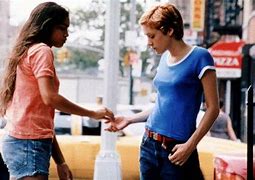



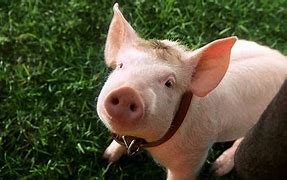
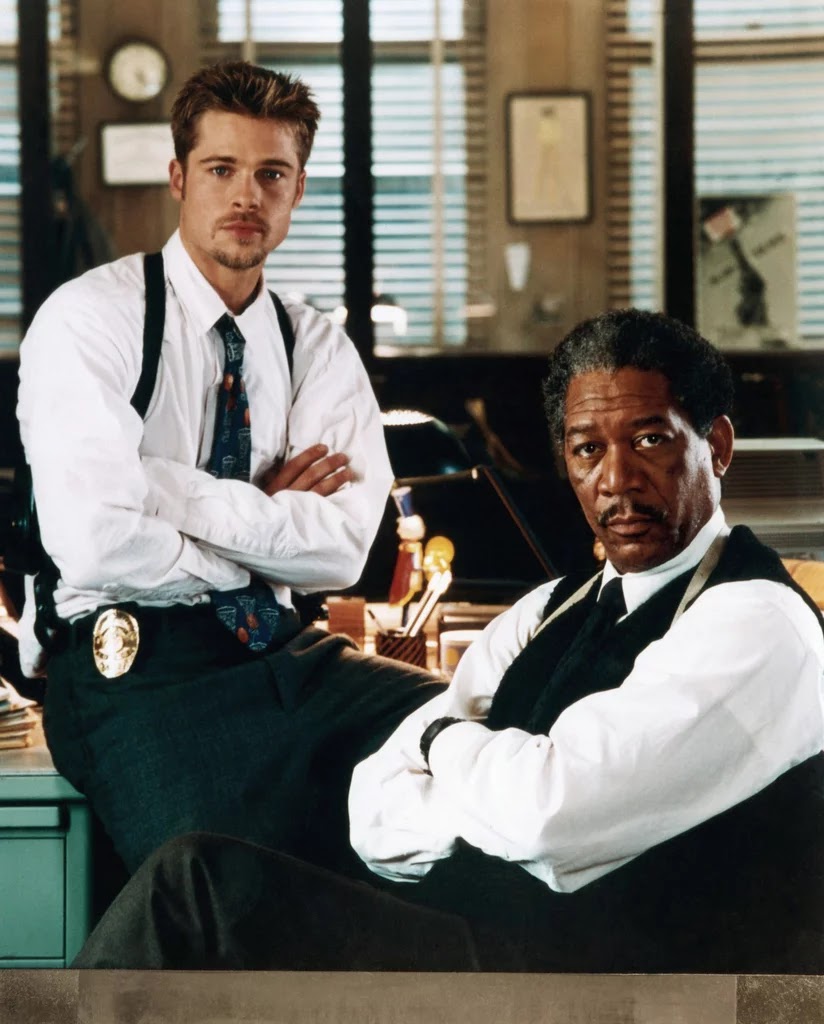

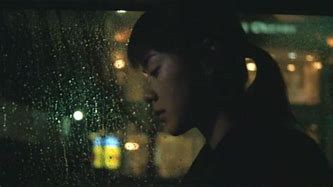
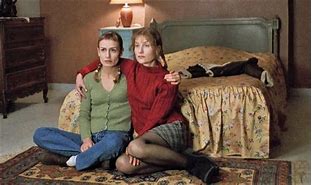

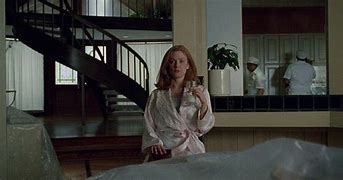
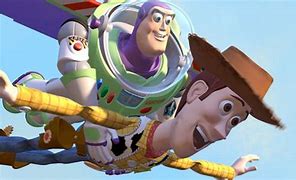



No comments:
Post a Comment